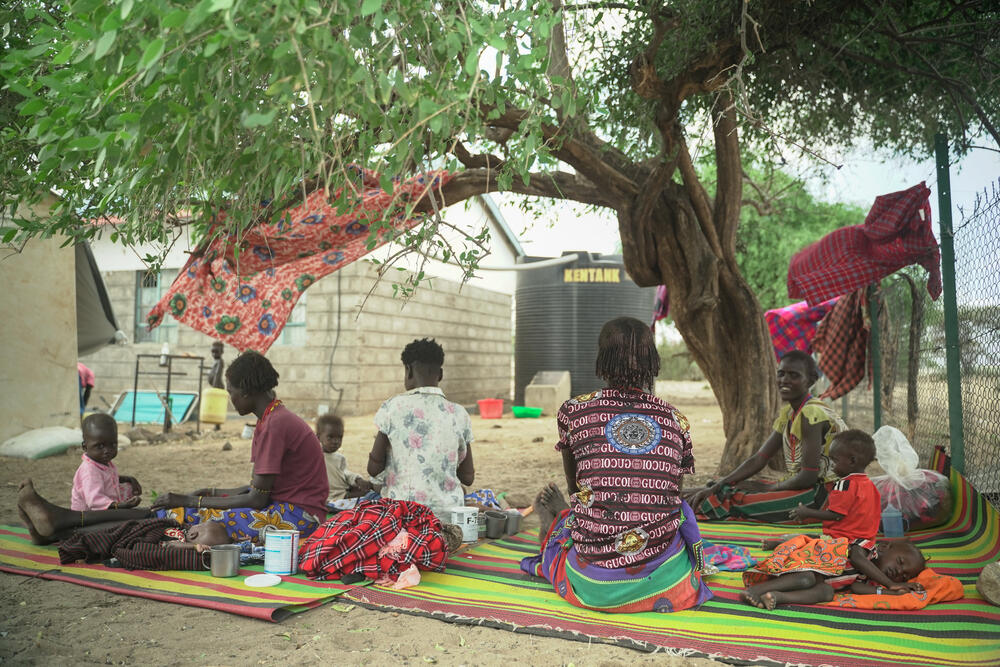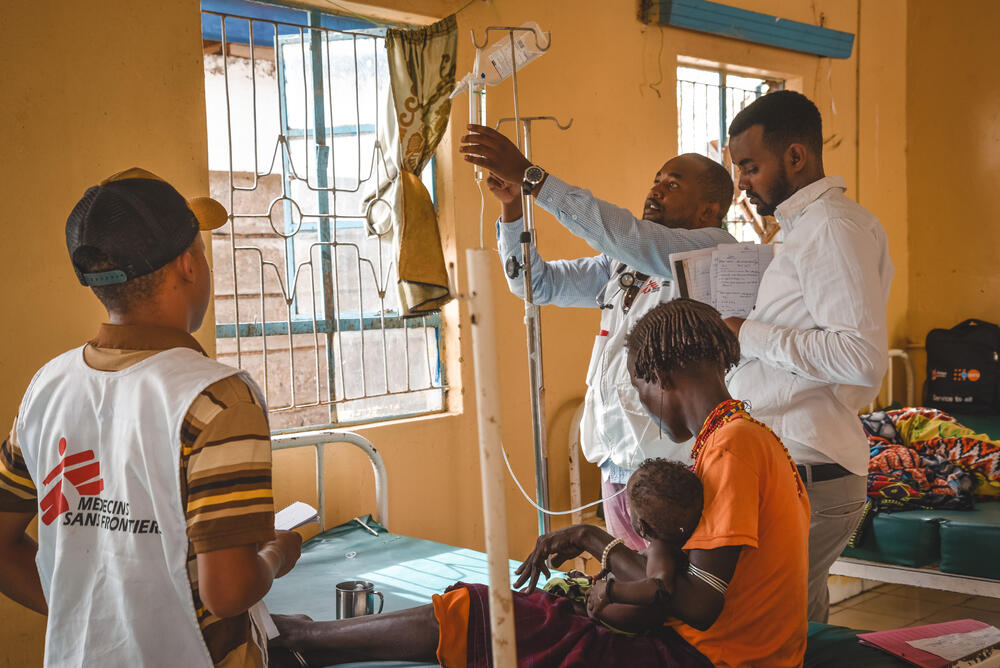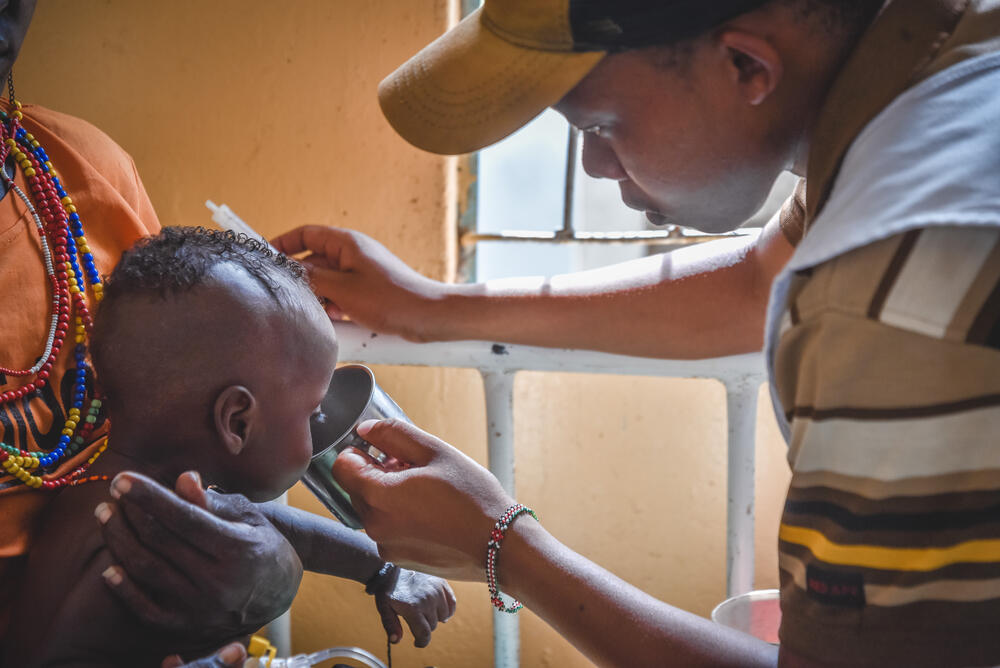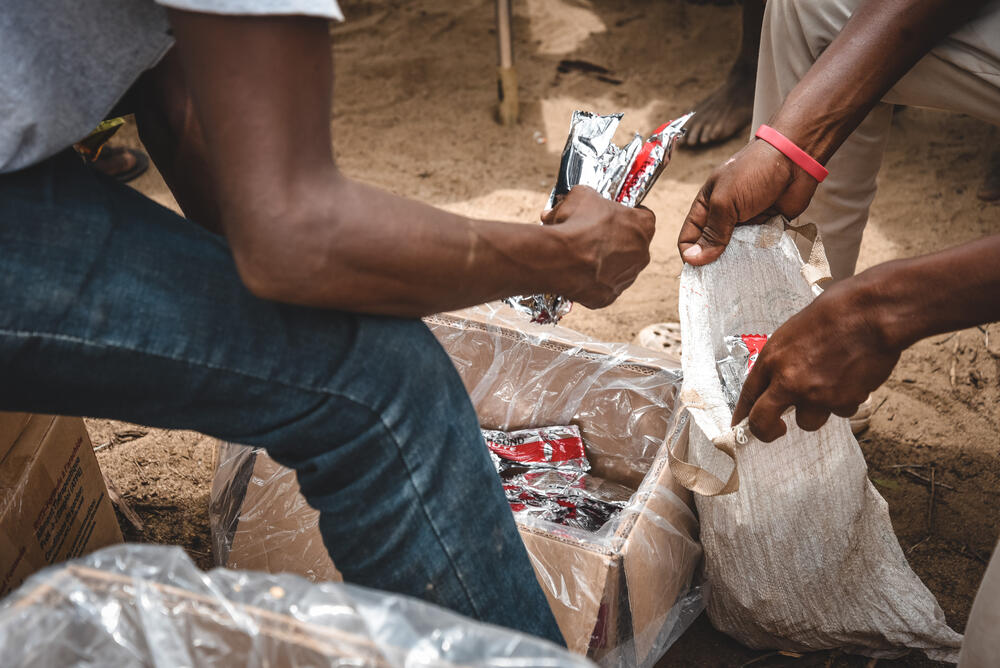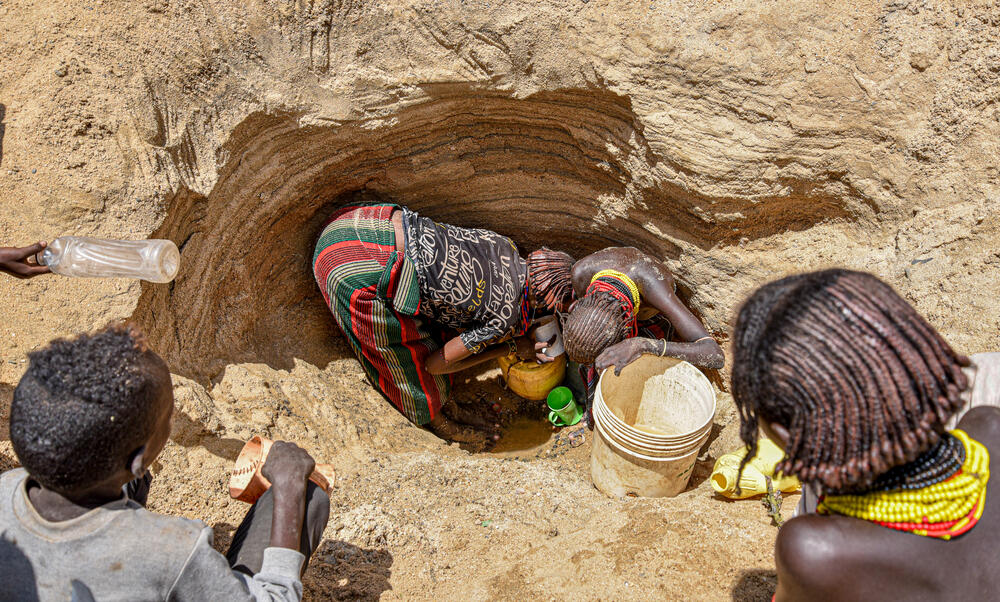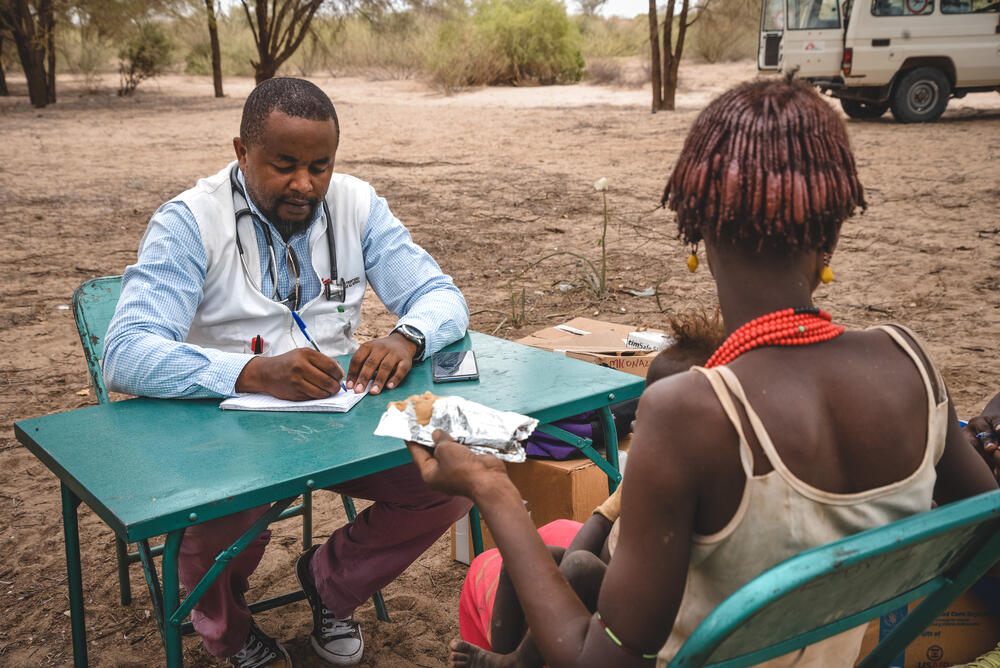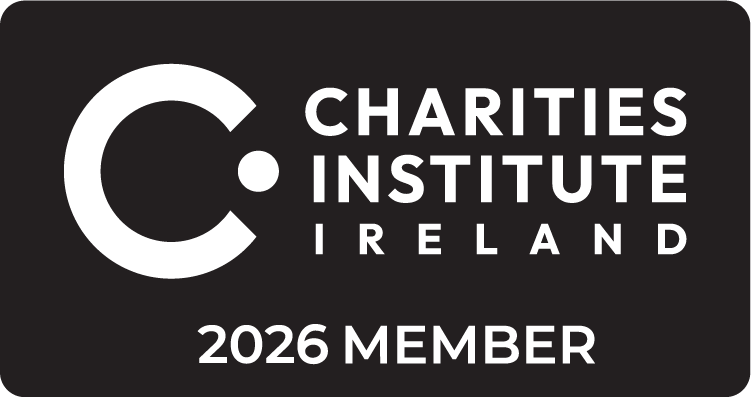Reinforced and sustained community surveillance required to prevent the undoing of the current gains in managing malnutrition
22 December 2022
As the drought continues, Médecins Sans Frontières (MSF) team has been responding to a malnutrition crisis in Illeret, Marsabit county since Mid-March. With one third of the town’s children under five years malnourished, MSF team has been working with community health educators and volunteers in supporting Kenyan health authorities in strengthening the integrated management of acute malnutrition. As MSF transitions the medical management to the ministry of health, community surveillance must be sustained to prevent the undoing of the current gains in managing malnutrition.
The impact of MSF malnutrition response is visible. From March to December 2022, MSF has screened 24182 children under 5 years newly screening 4923 children from the community and enrolling 1354 malnourished children in the malnutrition response while referring three to the referral facilities. This has allowed thousands of patients to access prompt care while reducing the number of malnourished children not responding to treatment.
MSF has been carrying out weekly active case finding and surveillance activities in the community increasing the coverage of the population. 117 of the 137 malnourished children admitted in the inpatient therapeutic feeding centre in Illeret health center were identified during outreaches and surveillance, reflecting the dire situation under reported within the community. “We reinforced community surveillance and education beyond the outreaches through community health educators, increasing early detection and management of malnutrition with reduced numbers of children not responding to treatment. This has also been complemented with much needed food distributions done by the World Food Programme and other agencies.” Says Edi Atte, MSF country director.
The health promotion messaging done by community health educators and volunteers have enhanced medical outcomes. Health education topics include personal hygiene, benefits of good nutrition, safe drinking water, proper waste disposal, immunization, and the importance of medical care such as referrals and hospital care for those admitted at inpatient therapeutic feeding centres.
Besides the involvement of more agencies in the various aspects of the response, accessing a variety and right quantity of food remains a challenge, as families continue losing livestock due to failed rains. Therefore, both medical and humanitarian response must continue. "With not enough food in the households, families share the therapeutic foods given to children hindering their progress. Therefore, food distributions must be sustained to reach the most vulnerable households using more inclusive selection criteria in identifying beneficiaries.” Edi affirms.
Very llittle water infrastructure exists with the drought. There is urgent need for the improvement of water access and the sanitation situation through accessible, clean, non-contaminated. This will reduce water borne diseases such as diarrhoea, dysentery among others and other skin and eye infections which are among the highest diseases affecting every four out of ten malnourished children. “The lake is salty and polluted forcing most of the community to collect water in the shallow wells dug along the seasonal riverbeds. Women and children are tasked with water collection, having to wait for over two hours and must make many trips for enough water. Children sometimes drink the salty water as is while not getting food, contributing to malnutrition.” Reports Daniel Faerner, MSF Environmental Health Manager in Illeret.
Qualified medical personnel like nurses, clinical officers and nutritionists should be increased both at the hospital and outreaches to enhance screening, management, follow-ups and reviews of the children’s progress in the programme-both at the health facility and in the community.
About MSF Response
Since mid-March 2022, MSF team has been supporting county health authorities in Illeret Ward in Marsabit County in responding to the malnutrition crisis by strengthening the medical component of Integrated Management of Acute Malnutrition (IMAM) through outreach activities and screening and setting up an Inpatient Therapeutic Feeding centre(ITFC) at the Illeret health centre.
By first week of December 2022, MSF team had screened 24,182 children aged 6-59 months, newly enrolling 1354 children identified with malnutrition. Outreaches Community surveillance and sensitizations conducted identified 117 of the 137 malnourished children admitted in the ITFC in Illeret Health Center, showing the dire situation underreported within the community. Three children were referred to the nearest higher-level facility.
MSF carried out 6438 medical consultations and supported the Ministry of Health in the routine vaccination of 3041 children under 5 years.
3219 pregnant and lactating mothers were screened and received supplements with 1467 women receiving anti-natal clinic consultations during the community outreaches.
